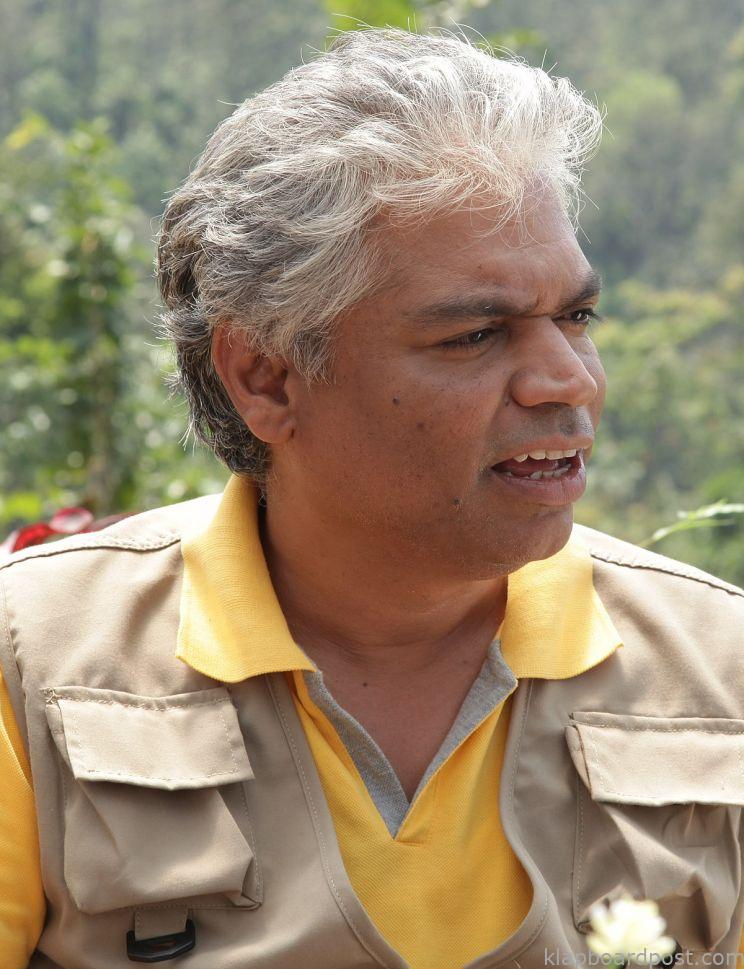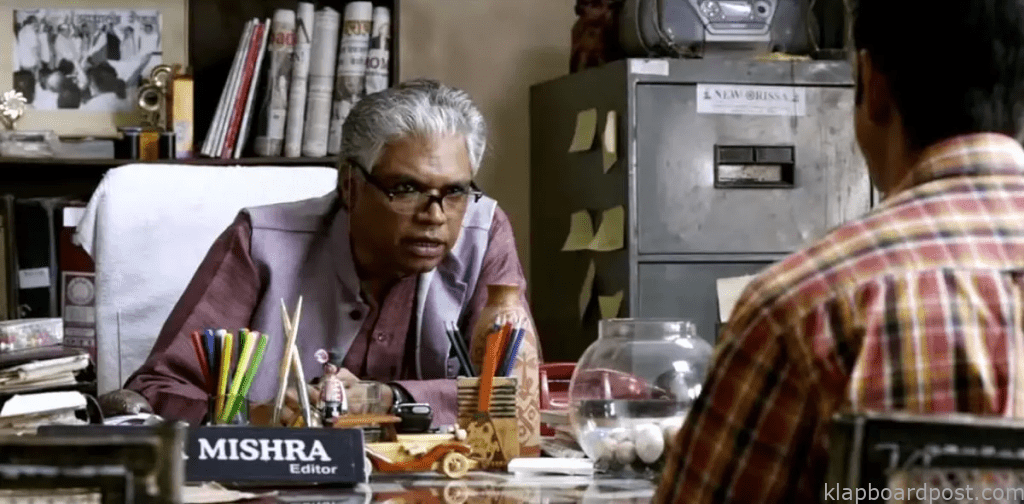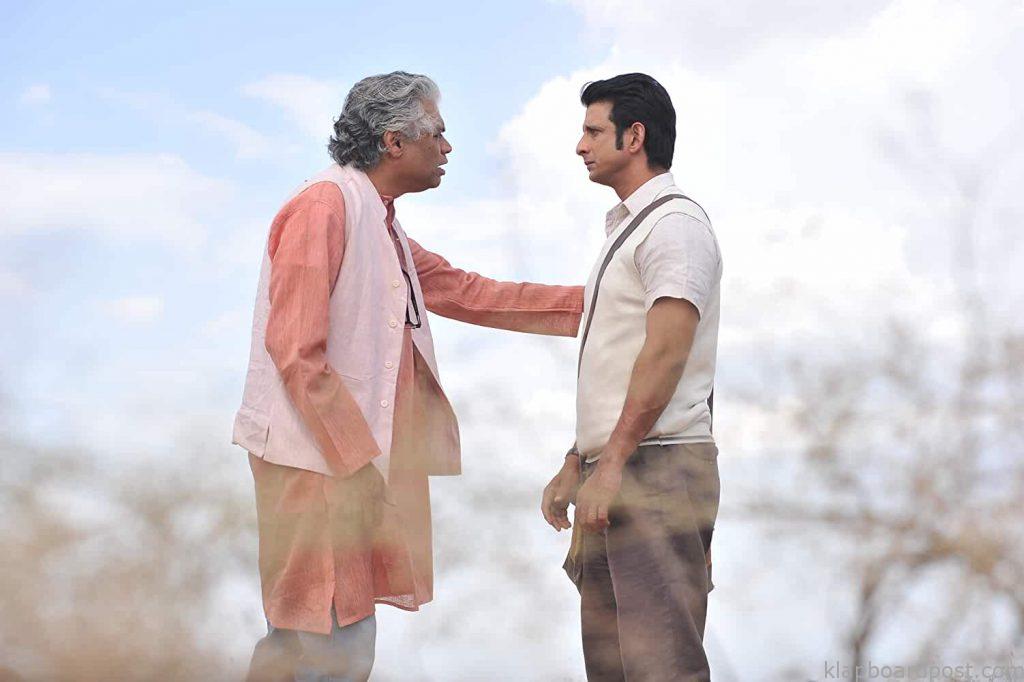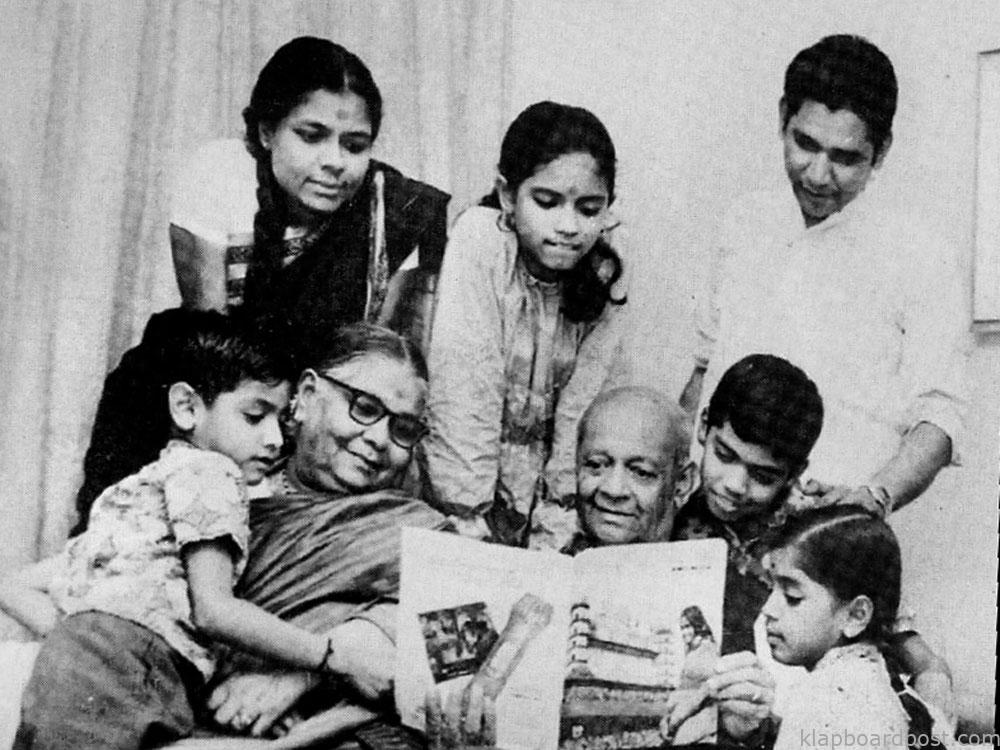Srivathsan Nadadhur
Journalism, theatre, activism, politics, films, television, and now OTT – there’s no arena where Prakash Belawadi hasn’t left an imprint. Carving your niche under an olive tree isn’t all that easy, especially if one has illustrious parents like BN Narayana and Bhargavi Narayan, names minus whom it’s impossible to discuss the history of Kannada theatre. Most of his siblings have spread their wings in other art forms and disciplines while simultaneously associating with theatre, and the next-generation too looks set to take the mantle forward.
Despite acting in a few Kannada films, Prakash took up acting seriously only after a brief appearance in Shoojit Sircar’s Madras Café, enough to prove his mettle and help him grow from strength to strength, star in biggies across multiple languages – Sanju, The Tashkent Files, Talwar, Saaho, Take Off, Airlift, Wazir and the recently released Shakuntala Devi. His latest release to hit OTT platforms is Graham Staines, Ek Ankahi Sachai: The Least of These (Hindi) on ShemarooMe Box Office, where he plays the editor of a publication, Kedar Mishra. Klapboardpost.com, in a tête-à-tête with Prakash Belawadi, gets him to talk about the film and his versatile career.

Art and theatre, precisely, has been a family tradition in your case, with three generations involved in it in some capacity. Would you say acting is in your genes or it’s a skill that you’ve acquired over the years?
I don’t think I ever wanted to be an actor. I was a backstage person involved in writing and direction and I could say my speciality was adapting novels into plays. It was only in the last decade or so that I have been acting and it certainly seemed strange to debut as an actor when I was almost touching 50. I have taught lots of actors and directed many plays. Certainly, acting isn’t new to me.
Has being an actor helped you look at filmmaking in a newer light?
I had acted in a couple of films for Girish Karnad before Madras Café happened. I haven’t had the nervousness and the tension of facing the camera until Shoojit Sircar made me realise that acting isn’t an intellectual skill and something that you need to feel and perform. It’s okay to theorise it as a director but you realise it’s a lot more than that when you set out to act. It’s also the training of the body as much as the mind and it was a lesson for me.
The roles that you’ve had in The Least of These, Madras Café, Shakuntala Devi, Talwar and several other projects are based on real-life personalities and incidents. Is it easier for you as an actor to have a readymade reference point?
The challenge with references to a real-life figure is that it can mislead you to cast someone who looks or behaves like that. Though it can be useful for an actor sometimes to resemble that person, you have to know how far you can go with it. The truth of the character, the context and the narrative are a way more important than the appearance. If you understand that there’s a limit to being similar to the reference person, it’s certainly an advantage.
What’s the best aspect of working with a first-time filmmaker? (In this case of The Least of These, Aneesh Daniel)
Though Aneesh Daniel was a first time director, he was knowledgeable about the craft. He wasn’t a novice with the process, knew what to do and had absolute clarity about the shots. He was sincere, picked his locations well and was sure about what he wanted to derive from a scene. It was important for him to tell the story because of the faith he belonged to. Additionally, he had experience with the medium through his previous experiences. He was open to suggestions, interacting with actors regularly, discussing and convincing us, which made the shoot a very comfortable experience. He doesn’t get ruffled easily and I can’t recall a single moment of tension while working in the film. These are all gifts that a director can have – great communication skills, clarity of thought.

Do you believe OTT is a great venue for a writer to unleash his skills and not fall prey to conventions?
For a long time in our generation, we had believed that the stage belonged to the actor and cinema, to the director. An actor is never really in control of a film because he/she doesn’t know what all comes into it later (suggesting post-production). In theatre, the stage ends and begins with the actor and he is the ultimate. When television came, it made the writer feel more important than the director. Long-running shows too are remembered for the writers and not the directors. OTT has furthered this belief. Unless the director himself has writing skills, it’s hard to make a show for an OTT platform. It’s a young medium and extremely different from cinema and television. The director just can’t come to the set and execute what someone else has written. He needs to invest time in the script as much as the production/execution.
The possibilities with OTT are indeed many…
One of the big things that’s going to happen is that we’ll see a great deal of experimentation in writing after this first wave of shows that come with a hangover of watching a lot of western content. When they’re done with this exploration, they’ll come back and realise there’s so much material to tap into. If you don’t get stories in India, where on earth can you find them? Cinema has a shelf life, it goes to the theatres, lands on the television and an OTT platform later and burns out eventually unless it’s a classic that you want to revisit it. Great shows on OTT and content made in the early days of the television industry are being cherished by this generation across the world and it’s a blessing that the medium lets your work live longer. The quality of viewers is unmistakably higher than other mediums and it gives you the courage to try new things, unlike cinema where you invest in the idea of distribution, reach, promotion costs and other factors that can come in the way of your vision. OTT is the future and I have no doubts about it.

With your influences deeply entrenched in Kannada theatre, isn’t it difficult to play roles amid backdrops that are so disconnected from your realm?
It’s challenging for sure! I’ve been nervous and tense acting in Hindi, Tamil or Malayalam films. I don’t let anyone know that because I feel so awkward and self-conscious. Fortunately, many high-quality directors think of me when they are writing a script and keep calling me.
The film industry loves typecasting actors and you would know it well. Just because you were good in Madras Café as the CBI director, filmmakers have mostly slotted you in stories involving espionage, border issues or events of national significance…
You’re right and this also makes the process boring because I either end up being a cop or CBI director in every alternate film. Thankfully, some assignments have offered me respite. The part I did in Airlift is a lovely character belonging to a different breed; unlike any of the disciplined/crazy person roles I had donned before (that’s a phrase he’s coined for them). Even when I played the CBI director in Talwar, the persona was a stark contrast to my role in Madras Café. When I get a role similar to the ones I’ve done in the past, I do try my best to weave in complexity and nuance to the performance. When it doesn’t work out, you simply do that for the money anyways.
Your Kannada serial Garva is remembered even today and your directorial Stumble won you a National Award. Wasn’t direction supposed to be your first choice in films than acting?
It is a natural choice and I agree with the statement. I wrote and directed Stumble, borrowed money from friends and lost most of it. I was so scarred by the experience that I was embarrassed to direct a film ever again. Almost 20 years after Stumble, I finally feel like directing a film again and promise to do one film a year from hereon. Once COVID-19 eases out, I will go back to directing a film.
Activism has been an integral part of your journey with the arts. Do you believe art should reflect the way we function as a society?
Art can negotiate very difficult, seemingly impractical problems in reality. It’s a power that no other avenue holds – neither politics, sociology nor even economics (all these subjects are built on logic, behave as if they were true, but they are not). Politics may not resolve issues, but art can, because it gives you the possibility of speculation. The idea of fiction is built on speculation and it provides the opportunity to construct an alternative version of reality. Say, fiction gives you the liberty to think India and Pakistan as one country but it’s impractical to even imagine it in real life. As long as you’re watching the film, it feels real enough but you return to the ugliness of reality later. You’re a changed person because for a moment, you truly invested in the make-believe version and it takes away all your anger and you call it uplifting. It may seem idealistic but the creation of such an aesthetic can make the viewer a better human and on the whole, result in a better society. What’s the use of art if it’s not idealistic?
All said and done, it’s surprising that you chose to take up engineering for your graduation…
Although I come from a theatre-family, theatre or acting meant that I could do some plays occasionally or during holidays for fun. I never thought of it seriously but as I grew up, I was so politically influenced. That one fatwa could take your freedom away was shocking. I got very politicised as a teenager and it was a ripple effect across all forms of media – be it cinema, theatre, literature or journalism. The political churning influenced us. Studying engineering, going abroad and making a living in the US seemed gross, so I instead became a journalist in Indian Express in the mid-80s. My theatre was politically charged henceforth and my career took a different turn. I was always poor from thereon and created distress to my family, but I’ve stuck to that.

Being part of an artistically inclined family, what were your family conversations like?
Theatre was an intrinsic element of our lives but all of us were engaged in different fields. I became a journalist, my mother was a central government employee at ESI corporation, my dad was actually labelled ‘the father of pressure cookers’ in India. He was the face of the grand old man of pressure cookers because he went all over India selling Prestige pressure cooker and marketing it. My grandfather was a doctor. Theatre was always our hobby and wasn’t our livelihood. Our conversations were about a wide range of topics because of our diverse disciplines. We always had great stalwarts coming home and talking to our parents. There was great exposure.
Your niece Samyukta Hornad and your daughter Teju Belawadi (Gantumoote fame) are holding onto your family’s legacy with the arts. Are you happy about it?
I would be very happy if they want to be actors and continue acting, but I’d be very unhappy if they thought it as a profession where they can make their livelihood. Depending on arts to make a living is a mug’s game because you won’t be honest to the form and it works on your mind. I think it’s important to have another career which is more tangibly practical, but you should keep your interests in poetry, theatre, music or films alive. It can work well as a hobby. However, if there are 250 days in the year where they are shooting or writing a story for someone, then it can well become their career.













